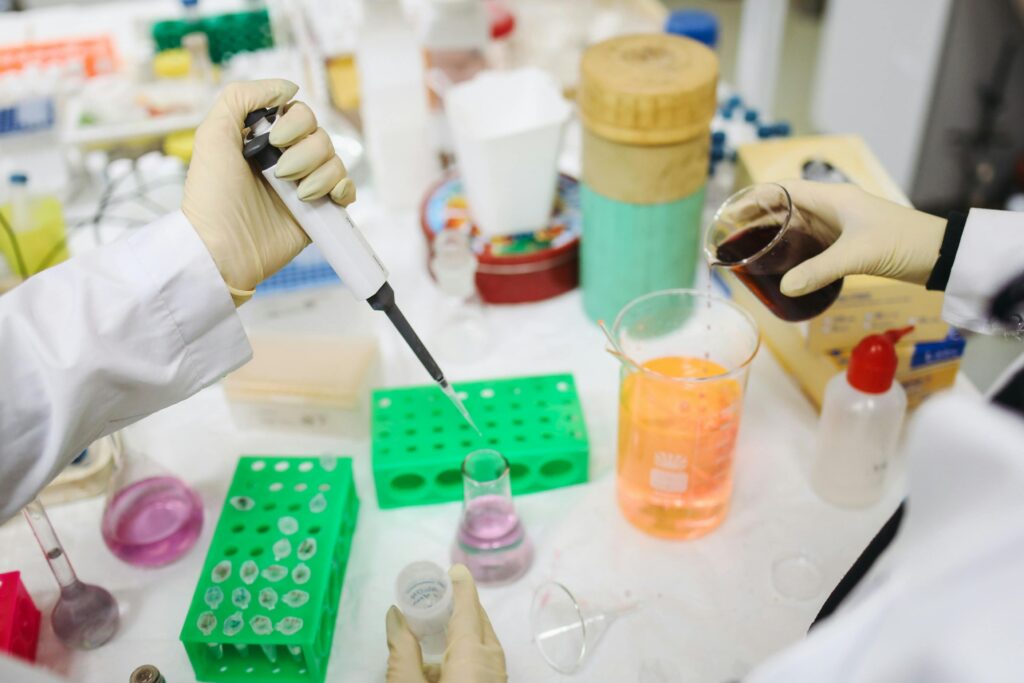Precision medicine is transforming healthcare by tailoring treatments based on a patient’s genetics, lifestyle, and environment. Specialists in this field use advanced genomic data to provide personalised healthcare solutions, improving patient outcomes.
If you’re passionate about personalised medicine, this guide will show you how to start your career as a precision medicine specialist.
LIMITED BURSARY (2025):
Thinking of starting a career in medical informatics? Study at RCSI & UCD Malaysia Campus (RUMC), a globally recognised medical school backed by 400 years of Irish medical education excellence.
- RM45,000 special bursary available
- Students pay only RM1,970 per year
- PTPTN-supported with global career pathways
Secure your future in the fast-growing digital healthcare sector. Apply now while the bursary is still available.
How Do I Become a Precision Medicine Specialist?
To become a precision medicine specialist, you need to earn a degree in a relevant field like genetics or bioinformatics, develop technical skills in genomic analysis, and gain practical experience through research or clinical work. Networking and continuous learning are also key to advancing in this evolving field.
1. Earn a Degree in Genetics, Bioinformatics, or Medical Sciences
A strong academic foundation is essential for a career in precision medicine. Start with a bachelor’s degree in fields such as biology, genetics, biotechnology, or bioinformatics. Focus on courses that cover human genetics, molecular biology, and data analysis to build the knowledge base required for genomic research. Additionally, consider electives in healthcare systems and medical ethics to better understand clinical applications of precision medicine.
2. Pursue a Master’s Degree or PhD in a Specialised Area
Postgraduate education is often necessary to advance in the field. A master’s degree or PhD in genomics, bioinformatics, or personalised medicine will equip you with in-depth knowledge of advanced topics such as pharmacogenomics, genetic counselling, and machine learning applications in healthcare. These programmes also provide opportunities to work on research projects, which are invaluable for building expertise and establishing your credentials.
3. Develop Technical Skills in Genomic Analysis
Precision medicine specialists must be proficient in bioinformatics tools and programming languages. Learning Python, R, and SQL will help you manage and interpret large genetic datasets. Familiarise yourself with genomic databases and tools like BLAST, Ensembl, and Genome Browser. Additionally, knowledge of machine learning algorithms can enhance your ability to identify patterns and predict disease risks based on genetic data.
4. Gain Practical Experience Through Research or Clinical Placements
Hands-on experience is crucial to developing practical skills in precision medicine. Look for internships, research projects, or clinical placements in academic institutions, hospitals, or biotech companies. These experiences provide real-world insights into genetic testing, personalised treatment plans, and the ethical considerations involved in handling patient data. Participating in published research will also strengthen your portfolio.
5. Build a Professional Network in Precision Medicine
Networking is a powerful tool for career growth. Attend industry conferences, workshops, and webinars focused on genomics and personalised healthcare. Join professional organisations like the European Society of Human Genetics or the American Society of Human Genetics. Engaging in these communities can provide mentorship opportunities, job leads, and collaborations that accelerate your career progression.
Shape the Future of Personalised Healthcare

Precision medicine is reshaping healthcare by offering treatments tailored to individual needs. As a precision medicine specialist, you can be at the forefront of medical innovation, improving patient outcomes through advanced genomics and data-driven solutions.
Ready to take the next step? Explore our medical informatics degree to build the skills and knowledge needed for a career in precision medicine. Join RUMC, a medical school with over 400 years of excellence in medical education and a reputation for shaping future leaders in healthcare.
FAQ
What Are the Day-to-Day Responsibilities of a Precision Medicine Specialist?
Precision medicine specialists are responsible for analysing genomic data to identify personalised treatment options for patients. They work closely with healthcare providers to implement patient-specific care plans that improve outcomes. Additionally, they contribute to research initiatives that advance the field of personalised medicine, ensuring that the latest genomic insights are applied in clinical practice.
What Key Skills Are Required to Succeed?
To succeed as a precision medicine specialist, you need a combination of technical and interpersonal skills. Genomic analysis and data interpretation are essential for identifying relevant genetic variations that impact patient care. Proficiency in bioinformatics tools and programming languages such as Python or R is necessary for managing large datasets. Clinical knowledge ensures that your insights are applicable in a healthcare setting, while strong communication skills help you collaborate effectively with other healthcare professionals.
What Qualifications Do I Need?
A bachelor’s degree in a relevant field such as genetics, bioinformatics, or medical sciences is the minimum qualification needed to enter the field. Pursuing a master’s degree or PhD in a specialised area like genomics or personalised medicine can significantly enhance your career prospects. Certifications in bioinformatics tools, genetic data analysis, and healthcare data privacy regulations are also valuable additions to your professional profile.
What is the difference between precision medicine and personalised medicine?
Both terms refer to approaches that tailor medical treatment based on individual differences, such as genetics and lifestyle. However, “personalised medicine” was the earlier term and was sometimes misinterpreted to mean that treatments are made uniquely for each patient. To avoid this confusion, the National Research Council proposed the term “precision medicine” in a 2011 report, emphasising that treatments are tailored to patient subgroups rather than individuals. Today, “precision medicine” is the preferred term in clinical and scientific contexts.




